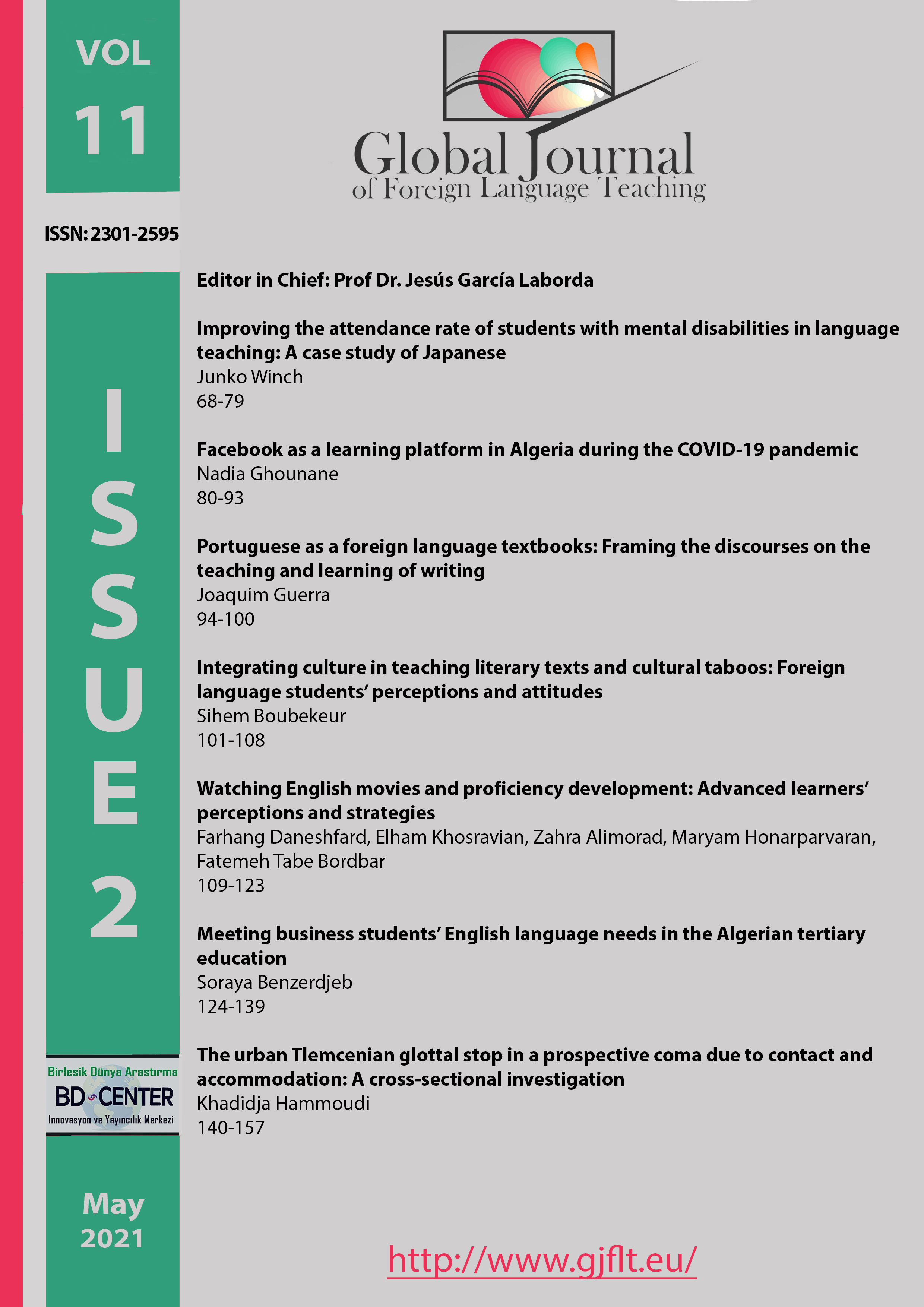Integrating culture in teaching literary texts and cultural taboos: Foreign language students’ perceptions and attitudes
Main Article Content
Abstract
Literature and culture intimately complement each other. Culture is a vehicle by which literary texts emanate values, social rules and beliefs. The connection between literature and culture must be tackled in foreign language classrooms for the ultimate objective of learning the target civilisation. The current research focuses primarily on the importance of bringing literature and culture into the classroom. The focal points of this paper are to shed lights on which cultures literature tutors ought to focus on, what kind of texts to expose students to, how best to lead teaching and which cultural themes need to be tackled. Classroom observational sessions are used for two academic years 2019–2020 and 2020–2021 with second-year students at Dr. Moulay Tahar University of Saida. The findings reveal that students do not favour texts that have cultural taboos. Thereby, using appropriate and interesting literature in the foreign language classroom would engage and motivate learners, as well as challenge their beliefs.
Keywords: Classroom, connection, culture, foreign language students, literature.
Downloads
Article Details

This work is licensed under a Creative Commons Attribution 4.0 International License.
Authors who publish with this journal agree to the following terms:- Authors retain copyright and grant the journal right of first publication with the work simultaneously licensed under a Creative Commons Attribution License that allows others to share the work with an acknowledgement of the work's authorship and initial publication in this journal.
- Authors are able to enter into separate, additional contractual arrangements for the non-exclusive distribution of the journal's published version of the work (e.g., post it to an institutional repository or publish it in a book), with an acknowledgement of its initial publication in this journal.
- Authors are permitted and encouraged to post their work online (e.g., in institutional repositories or on their website) prior to and during the submission process, as it can lead to productive exchanges, as well as earlier and greater citation of published work (SeeThe Effect of Open Access).
